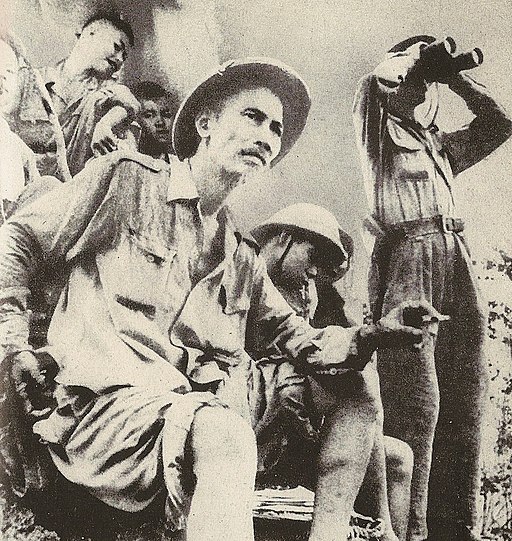Let's Talk Human Rights

Difficult History, Divided Memories
By Dr. Paul Morrow
Last week, as Americans celebrated Labor Day, citizens of Vietnam marked the 50th anniversary of the death of Ho Chi Minh. Born Nguyen Sinh Cung in 1890, Ho was active for more than forty years in anti-colonial and communist revolutionary movements in Vietnam. Supported at various stages by contacts in China and the Soviet Union, Ho Chi Minh declared Indochina’s independence from French rule on September 2, 1945, and helped lead conventional and guerilla warfare against French, South Vietnamese, and American forces during the two decades following. At the time of his death in 1969, Ho had for several years been sidelined from political and military leadership. He is nevertheless remembered in Vietnam as a hero of what that country’s historians call the American War.
Fifty years is a long time. Neither Vietnam nor the United States remains the same place it was half a century ago. In America, recent experiences of war in Iraq and Afghanistan have rekindled resistance to committing U.S. troops abroad. In Vietnam, the policy of “renovation” (Doi Moi) instituted in the mid-1980’s has opened the way for foreign investment, urbanization, and economic growth - while also allowing greater scrutiny of human rights concerns. Since the normalization of relations between the United States and Vietnam in 1995, young Americans can travel to Hanoi, Ho Chi Minh City, and other sites of memory in order to teach English, join eco-tours, or study development projects. They may fly home again without ever engaging meaningfully with the war or its legacy.
Despite these changes, the experience of the Vietnam War continues to shape U.S. and Vietnamese society. The goal of the Vietnam Legacies Project, recently launched by the Human Rights Center is to explore the unfinished transition from war to peace, conflict to reconciliation, with a view to better understanding issues of justice, memory, and moral repair that remain unaddressed from the conflict. Funded by a generous gift from UD alum and Vietnam veteran John C. Meagher (UD ’63), the project will unfold through a combination of field research, academic talks, community dialogues, and a scholar-advocate symposium resulting in a publication. Led by Dr. Paul Morrow, an expert in philosophical ethics and transitional justice, and supported by Dr. Benjamin Schrader, a political scientist whose work focuses on veterans’ activism, the project seeks particularly to uncover connections between present-day polarization and societal schisms —around gun violence, white nationalism, media trustworthiness, and refugee policies—and Vietnam War-era social divisions. On September 6th, Dr. Schrader will begin an extended period of field research in Vietnam, starting with a tour of major Vietnam War sites with the non-profit group Veterans for Peace.
Ultimately, the project seeks to demonstrate how the anti-colonial movement launched by Ho Chi Minh a hundred years ago continues to affect everyday life in America today. At the year’s end, a set of recommendations will be formulated on how the Human Rights Center might help tackle the impact of unaddressed conflict legacies through education and research on transitional justice, historical dialogue, and peace advocacy.
If you have questions or suggestions for the project team, please email them to hrc@udayton.edu. And watch this space for posts about the project and other significant Vietnam War milestones in the future.
Dr. Paul Morrow
John M. Meagher Human Rights Fellow
University of Dayton Human Rights Center
